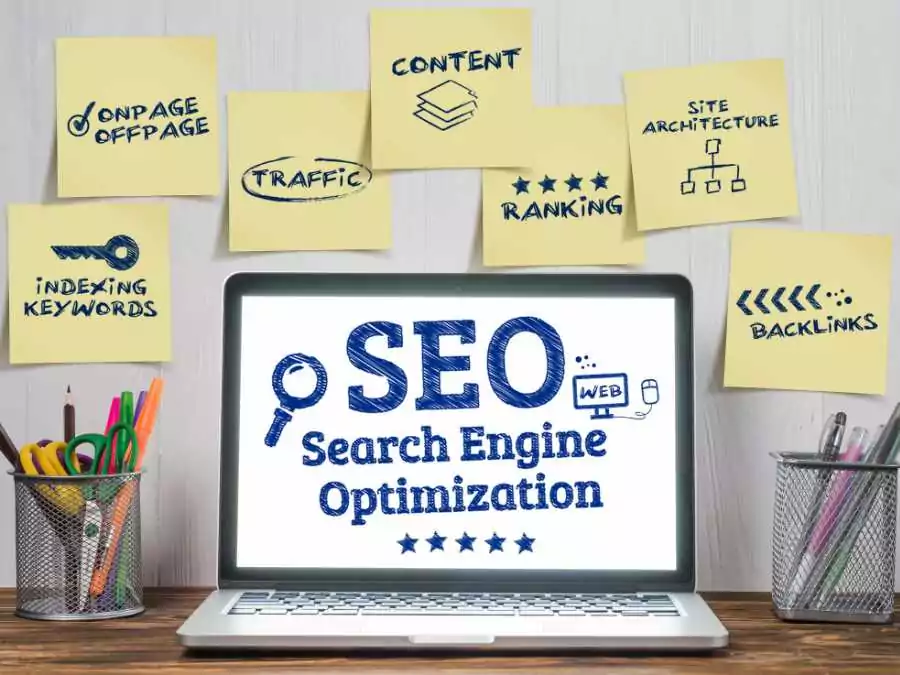Digital marketing is one of the fastest-growing industries these days. Businesses of all kinds, big and small, understand that in order to succeed, they need SEO professionals to help them build a strong online presence. Using the latest optimization strategies, a business can improve its website’s ranking in search engine results pages (SERPs), increase traffic, and drive conversions.
Thus, to succeed in a typical SEO career path, you need to master specific skills, such as technical search engine optimization, data analysis, SEO forecasting, and other skills that we will cover in this article. Whether you're just starting out in SEO or looking to take your skills to the next level, this article has something for you. So, let’s dive in and discover the top ten SEO skills you need to become a top SEO specialist.
Top 10 SEO Skills You Need to Have
SEO skills are crucial for businesses and marketers in today's digital age because search engines are the primary way that consumers discover new products and services online. Moreover, the search engine landscape is constantly evolving. Google, for example, updates its search algorithm regularly, which means that SEO techniques that worked in the past may no longer be effective.
Now, let’s take a look at the essential SEO skills you’ll need to advance your career in 2023:
1. Understanding online business strategy
The first skill that every marketer should have is an understanding of online business strategy. By understanding a business's goals, target audience, and competitive landscape, you can develop an SEO strategy that aligns with the overall business strategy. You can learn SEO fast for your site by researching the industry, analyzing competitors, and being able to identify opportunities for improvement. When you have a clear understanding of the business’s unique value proposition, you can develop a strategy that will increase its visibility on the web, drive relevant traffic, and increase conversions.
Moreover, having this skill can also help identify potential issues and challenges that may affect the success of the SEO campaign. Without a clear understanding of online business strategy, you won’t be able to develop an effective plan that will deliver measurable results.
2. Technical SEO
To succeed in these career paths, you also need to have knowledge of technical SEO. With such knowledge, you will be able to optimize the website's technical elements and improve its visibility and ranking in search results. Technical SEO includes tasks like fixing broken links, optimizing website speed, improving website architecture, ensuring that the website is mobile-friendly, and implementing schema markup. All of this helps search engines understand the website’s content and architecture, which helps them rank the most relevant results higher for users.
Technical SEO requires marketers to have a basic knowledge of JavaScript, HTML, CSS, and website development. Modern SEO professionals also use various resources for technical SEO. For example, you can use a tool like SE Ranking for more proficient research of website tech errors. It provides a detailed analysis of all technical errors that can negatively affect website performance, including page experience issues. All of the detected problems are grouped based on their criticality. Effective Technical SEO requires the utilization of tools to monitor the performance of websites and identify issues like broken links and duplicate content. The tool also provides practical tips on solving them, so you will have a comprehensive understanding of your website’s health and a plan for improving it.
3. In-depth keyword research and intent analysis
Another skill you should have in the career in SEO is an in-depth knowledge of keyword research and intent analysis. Keyword research involves tasks like analyzing search volumes, keyword relevance, and competition levels. That way, you will be able to identify what keywords are the most effective for specific business purposes. Intent analysis is all about understanding the user’s search intent when they enter a particular keyword or phrase. When a business understands its audience’s intent, it can create content that better addresses the user’s needs and delivers more relevant results.
4. Planning link-building strategy
You also need to know how to plan a link-building strategy, which involves acquiring high-quality backlinks to a website from other authoritative and relevant websites. With a strong link-building strategy, businesses can improve their website’s visibility and ranking in search results. Effective link-building requires a deep understanding of the website's niche, target audience, and competitors. It requires identifying high-quality websites that are relevant to the business and developing a strategy to acquire backlinks from those sites. When planning a link-building strategy, it is necessary to monitor backlinks regularly to ensure that they remain relevant and authoritative and reach out to other websites to request backlinks.
5. Competitive SEO analysis
Having skills in competitive SEO analysis means being able to efficiently analyze competitors’ websites to identify opportunities to improve website ranking. To build your SEO career path, you should know how to gain insights into competitors’ strengths and weaknesses, identify gaps in the market, and develop an SEO strategy that will help you outperform them. You need to be able to analyze your competitors’ keyword rankings, website structure, content quality, and backlinks.

6. Data analysis and SEO reporting
A professional SEO practitioner should also be knowledgeable in data analysis and reporting. Data analysis involves collecting and interpreting data to gain insights and make informed decisions. One essential aspect of data analysis is using an SEO analyzer tool to assess and improve your website's performance. You should be able to analyze data from a variety of sources, including website analytics tools, search engine ranking reports, and keyword research tools. SEO reporting involves presenting data and insights in a clear and concise manner that is easy for stakeholders to understand. SEO practitioners should be able to create professional reports that are tailored to the needs of different stakeholders, such as executives, marketing teams, and developers. You should also have proper knowledge of the Google toolbox: Google Analytics and Google Search Console.
7. SEO forecasting
Search engine optimization forecasting involves predicting future trends and outcomes in the market and in search engine optimization. If you develop this skill, you will be able to plan your strategies based on changes in search engine algorithms, industry trends, and user behavior. To be able to forecast, SEO professionals need to analyze data from past performance, competitors, and market trends. This means staying up-to-date with the latest changes and being able to anticipate what will happen in the future. Moreover, analyzing website analytics can help identify improvement areas and track progress toward KPIs.
8. Content marketing
This skill involves creating relevant, high-quality content that responds to users’ needs and attracts the target audience. It can help improve search rankings, build brand authority, and drive more traffic to the website. In fact, according to statistics, the global content marketing market is set to grow by USD 417.85 billion by 2025. To be proficient in content marketing, you need to be able to understand the target audience, identify their needs and interests, develop a content strategy based on those needs and interests, and create content that will meet all the requirements.
9. Basic coding knowledge
You don’t need to be proficient in all coding languages to be an SEO marketer, but basic coding knowledge is still a must. It will allow you to make technical adjustments to the website. Thus, you should be familiar with HTML, CSS, and JavaScript. Additionally, basic coding knowledge can help SEO practitioners identify technical issues that may be impacting search rankings and user experience.
10. Local SEO
One of the greatest skills an SEO consultant can have is knowledge of local SEO. This involves optimizing a website to rank in local search results. If the business you are working for has a physical presence, then local SEO is needed to attract the target audience from the area in which the business operates. According to the statistics, in 2020, 93% of consumers used online searches to find a local business. Local SEO involves optimizing the website for local keywords, creating and optimizing Google My Business listings, and building local citations. Local SEO also involves encouraging people to leave reviews and responding quickly to users’ requests and questions.
Conclusion
This is not a complete list of critical SEO skills, but the skills described here are the most important ones. Mastering these advanced SEO skills will significantly advance your career in digital marketing. An SEO manager must deeply understand the latest SEO strategies, technical elements, and user behavior to create effective SEO plans that will drive traffic to the website, improve conversions, and ensure that the web page ranks high in search results. By continually improving and adapting to the ever-changing SEO landscape, marketers can help businesses increase their online visibility, outperform competitors, and achieve measurable results.


